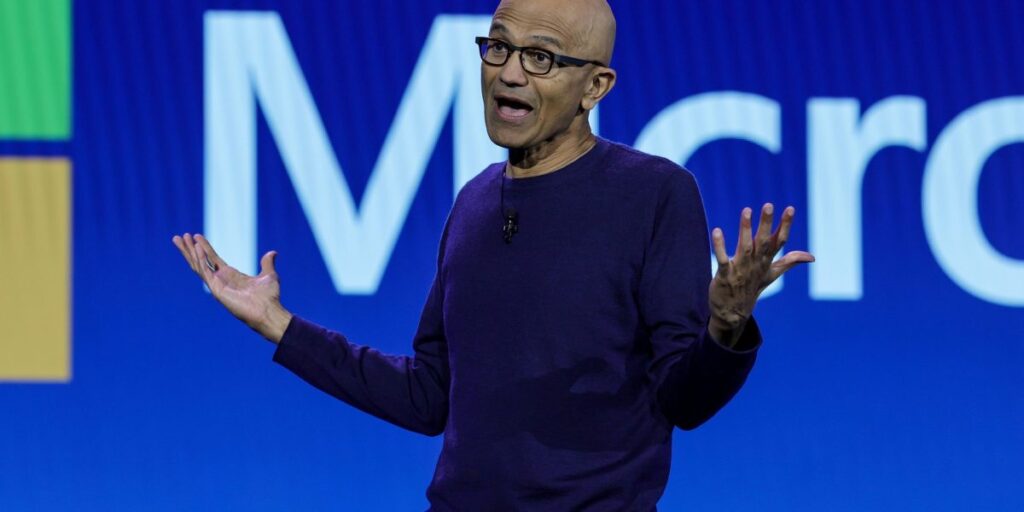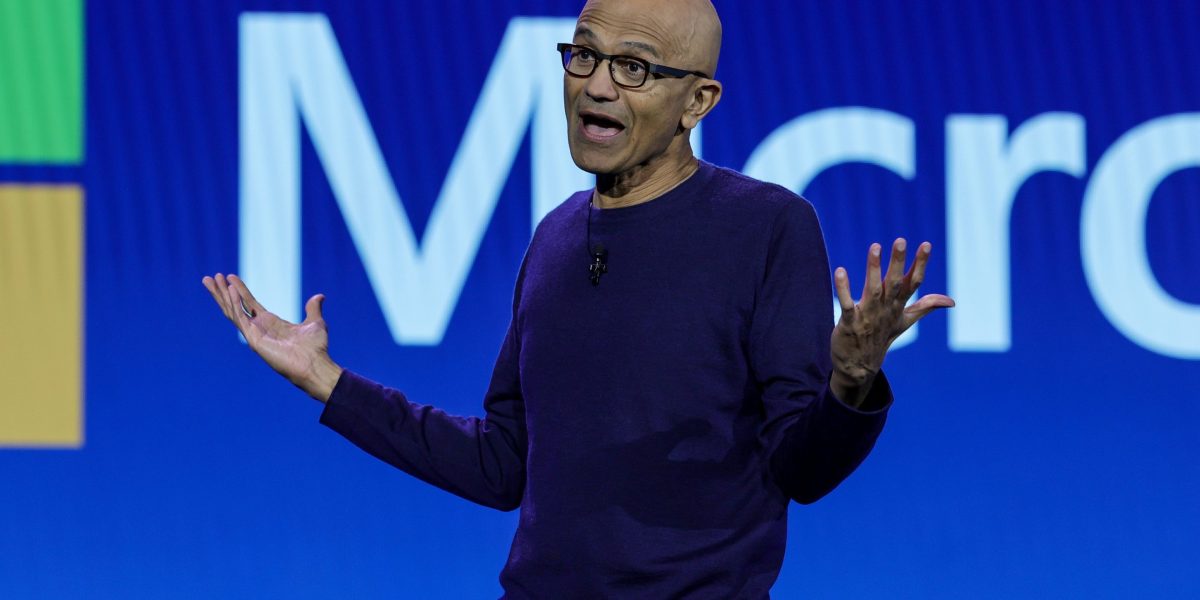A Microsoft victory and Mozilla defeat: The fallout from Google’s antitrust saga
Here are the biggest winners and losers in the aftermath of Google’s antitrust ruling.


Google had a bad day on Monday. A federal judge ruled in the first major antitrust case against big tech in over two decades that Google has an illegal monopoly on the search market. As a result of its pervasive presence on phones and browsers, the tech company was able to hike advertisement rates with few consequences. According to the Department of Justice, Google paid $26 billion in 2021 to be the default search engine for the masses.
“Google’s distribution agreements foreclose a substantial portion of the general search services market and impair rivals’ opportunities to compete,” judge Amit Mehta said in the case’s 286-page ruling.
With Google’s $2 trillion parent company Alphabet a force to be reckoned with in the tech world,
the outcome of the case is bound to cascade beyond Google and its users. As the dust settled on the case, tech and antitrust experts said the lawsuit could have plenty of ripples on entities in the tech industry—for better or for worse. Here are the winners and losers they identified.
The winners
While the DOJ is the obvious victor in the case’s ruling, the Federal Trade Commission—which is currently embroiled in lawsuits with other big tech companies like Apple, and readying antitrust probes into Nvidia, Microsoft, and OpenAI—could also benefit from the case, according to George Hay, a senior law professor at Cornell University. The FTC’s approach now is a departure from the era of the 1990s and 2000s during a period of rapid innovation, when the regulatory body took years to crack down on the meteoric rise of tech monopolies.
“It suggests that the court is willing to take on a dominant firm and explain why it’s so dominant and attribute some antitrust liability to some reason for dominance,” he told Fortune.
But despite the Justice Department getting a favorable ruling, Adam Kovacevich, former Google policy director and founder of the tech coalition Chamber of Progress, told Fortune that tech will continue to win big, likely crowning Microsoft as the case’s biggest winner.
“The thing about big tech antitrust crusades is that the big winner, many times, is another big tech company,” he said.
As a result of the suit, Google could be prohibited from bidding in default deals, Kovacevich said, leaving the door open for other search engines to take advantage. Because of Microsoft’s power and influence in the industry—to the tune of a $3 trillion market capitalization—it should have no problem securing its search engine Bing as the default for some major platforms, Kovacevich argued.
Microsoft has openly expressed this as a goal. CEO Satya Nadella testified in Google’s antitrust case in 2023, saying how hard it was to strike a deal with Apple to replace Google as its default browser. Though Bing lacks a robust usership compared to Google, Nadella promised in his testimony the company would be able to invest more in the engine.
It’s also a symbolic victory for Microsoft, which, 23 years ago, lost the last major federal antitrust case. In 2000, the DOJ ruled Microsoft violated antitrust laws through the restrictions it put on PC manufacturers. But Microsoft came out relatively unscathed: After George W. Bush became president in 2001, the company had the opportunity to settle the suit. Microsoft was also able to avoid splitting into two companies, the original request of the judge. But despite dodging a bullet in the remedy stage of the case, there’s still a desire from the juggernaut to stay on top and give other big tech companies a taste of what it experienced, Kovacevich said.
“Basically for 20 years now, Microsoft’s position has been, ‘We didn’t agree with the government, but this is what they did to us, and so they should do the same thing to Google,’” he said.
Microsoft declined Fortune’s request for comment.
With the potential for big tech to be humbled, Luther Lowe, head of public policy at startup accelerator Y Combinator, believes the impending remedies could benefit tech startups unable to previously compete with Google’s massive resources.
“This ruling could significantly reshape the competitive landscape to benefit ‘little tech’ by reducing Google’s gatekeeping power & creating more open competition in search & digital advertising,” he wrote on X.
Kovacevich isn’t so sure. While smaller search engine sites like DuckDuckGo may have less competition, depending on the remedies from the case, it’s a long shot for it to be able to increase its market share. Because these smaller tech companies lack Microsoft and Google’s funding, their products simply aren’t as strong or user-friendly.
“But how do you force consumers to choose a certain inferior search engine?” Kovacevich said.
DuckDuckGo told Fortune in a statement it does offer a competitive search engine alternative and applauded the DOJ’s decision in the antitrust case.
“We’ve passed a key milestone, but there’s still a lot of history to be written and Google will do anything it can to get in the way of progress which is why we hope to see a robust remedies trial that can really dig into all the details, propose an array of remedies that will actually work, and set up a monitoring body to administer them,” the company said.
The losers
The ruling of Google’s suit could have a big impact on Samsung and Apple, which have shelled out on deals to have Google as their default search engines. Apple paid $20 billion in 2022 alone to have Google as Safari’s default search bar. Mehta argued in the hearing those agreements were detrimental to competition, accounting for 94.9% of the search market. Following the ruling, the future of these deals are unclear.
But while both tech companies—and Apple in particular—may appear to be most directly impacted by the outcome of the antitrust case, the biggest loser is likely Mozilla, Kovacevich said. When users type in search queries into Mozilla’s Firefox browser, it reroutes them to Google. Mozilla’s deal with Google is incredibly lucrative, making up $510 million of its $593 million in revenue, according to its 2021-2022 financial statements. It also heavily relies on Google’s participation in bidding wars over default deals, according to Kovacevich. If Google is no longer able to participate in default deals, there’s less incentive for replacement candidates like Microsoft to want to pay as much for platforms to use Bing. That could impact Mozilla’s financial dependence on Google, with lower bids and less revenue for Mozilla.
“What Mozilla was benefiting from was the bidding war between Google, and so I think that is almost certainly going to go away,” Kovacevich said.
Mozilla said it’s closely reviewing the case to examine its impact on the company.
“Mozilla has always championed competition and choice online, particularly in search,” a spokesperson told Fortune in a statement on Monday. “Firefox continues to offer a range of search options, and we remain committed to serving our users’ preferences while fostering a competitive market.”
With rumblings of potential default search engine changes, there’s also potential for users perfectly happy with Google’s massive search bar presence to be inconvenienced. And the outsized consequence could be that people grow frustrated with other platforms, and leave them altogether.
There’s past precedent for a user revolt. In 2014, Mozilla switched its Firefox default search tool from Google to Yahoo as part of a $375 million five-year-deal. The quality of the experience with Yahoo paled in comparison to its competitor, however, and users simply left the browser. Mozilla CEO Mitchell Baker called it a “failed” bet, and by the end of 2017, Mozilla had reverted its default browser back to Google
Precedent and evidence aside, the shakeout to determine the true winners and losers of the case will take months, Hay warned. Google will appeal the decision, Kent Walker, president of global affairs said in a statement to Fortune, with a separate DOJ hearing to discuss remedies scheduled for September. Until then, Google has “no real incentive to change behavior,” according to Hay.
“Nothing’s going to happen for quite a while,” he said.








